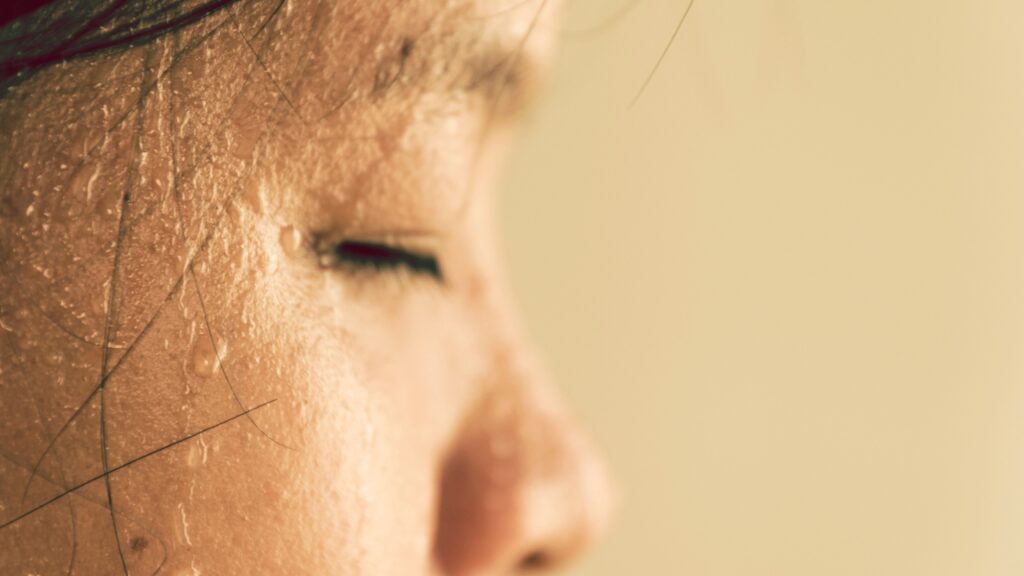
Hyperhidrosis is a medical condition characterized by excessive sweating that isn’t necessarily related to heat, exercise, or stress. People suffering from hyperhidrosis experience excessive sweating in specific areas such as the hands, feet, armpits, or even the entire body. This can severely impact daily life, causing discomfort and embarrassment.
Table Of Contents
- Symptoms of Hyperhidrosis
- Effective Strategies to Manage Hyperhidrosis
- Natural Remedies for Hyperhidrosis
- When to See a Doctor
- Managing Hyperhidrosis in Daily Life
- FAQs

Symptoms of Hyperhidrosis
Recognizing the signs of hyperhidrosis is the first step toward managing it effectively. Common symptoms include:
- Visible sweat stains: Constant wet patches on clothing or skin.
- Hindered daily activities: Difficulty in performing tasks due to sweaty hands or feet.
- Skin issues: Soft, peeling skin in areas of excessive sweating.
- Frequent skin infections: Increased risk of fungal infections in damp areas.
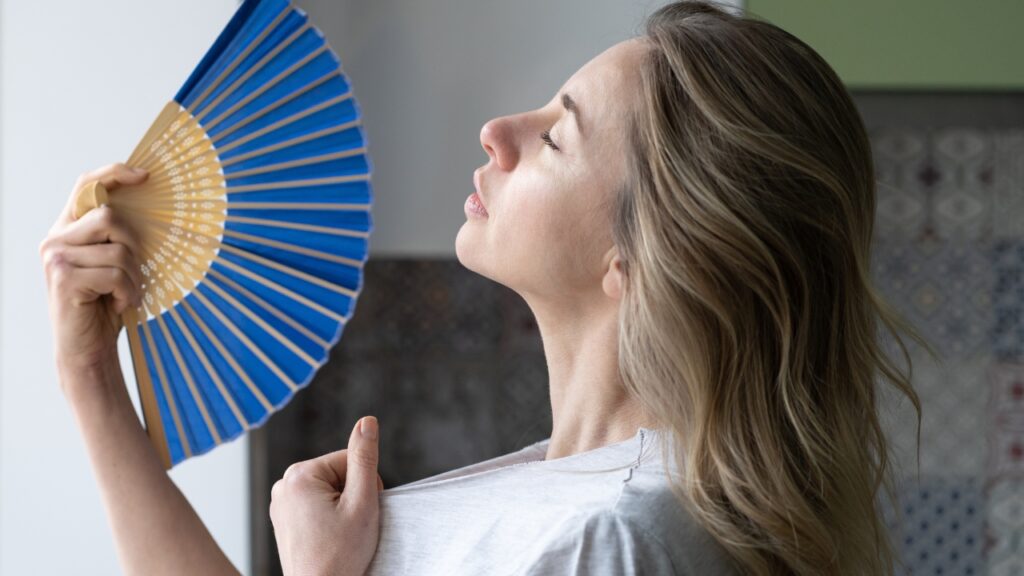
Effective Strategies to Manage Hyperhidrosis
1. Use Antiperspirants
Rather than simple deodorants, opt for antiperspirants. These products block the sweat glands, reducing the amount of sweat produced.
2. Choose the Right Fabrics
Wearing natural, breathable materials like cotton can help manage sweat better. For the underarms, use sweat pads to prevent stains on your clothes.
3. Foot Care
Rotate your shoes and allow them to dry properly. Prefer natural materials like leather for better air circulation and choose cotton socks that absorb moisture.
4. Thermal and Specialized Treatments
Consider treatments such as iontophoresis or Botox injections for relief. Applying controlled heat with special devices can also reduce sweat gland activity.
5. Keep a Diary
Track the conditions or foods that trigger excessive sweating to avoid them in the future. This will help you understand your triggers better.
6. Mental Health Care
Hyperhidrosis can lead to emotional distress and depression. Stay informed about the condition and seek professional help if needed.
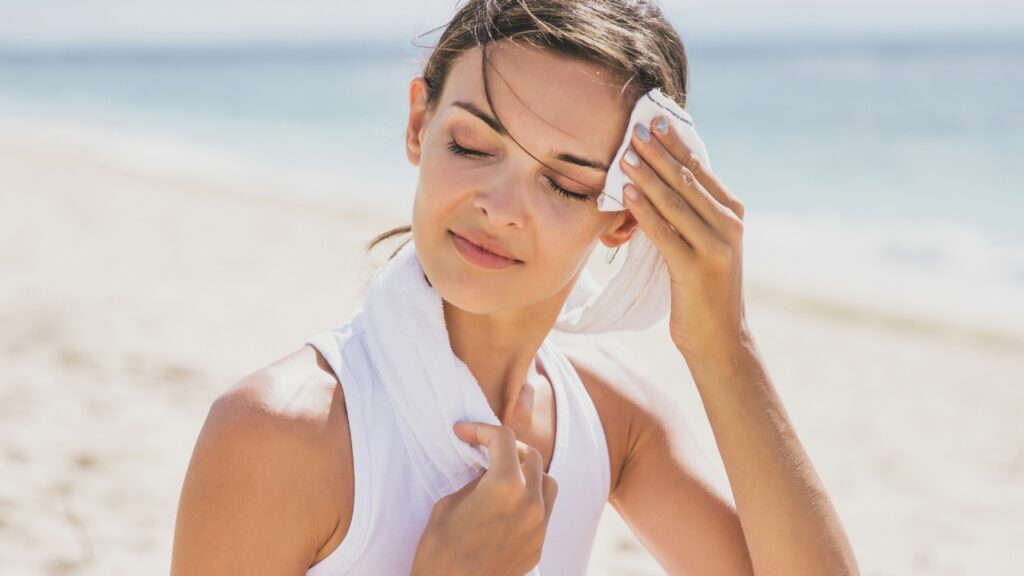
Natural Remedies for Hyperhidrosis
Apple Cider Vinegar
Applying apple cider vinegar to sweat-prone areas can help balance pH levels and reduce sweat production.
Witch Hazel
This natural astringent can be used to shrink pores and reduce sweating.
Baking Soda
Baking soda absorbs moisture and can be used as a natural deodorant to keep sweat at bay.

When to See a Doctor
If over-the-counter solutions don’t help, it may be time to consult a healthcare professional. There are medical treatments available that can provide significant relief.
Prescription Antiperspirants
Stronger than over-the-counter options, these require a doctor’s prescription and can be more effective in severe cases.
Medications
Certain oral medications can help reduce sweating, though they may come with side effects.
Surgical Options
In extreme cases, surgical intervention to remove sweat glands or interrupt nerve signals may be considered.
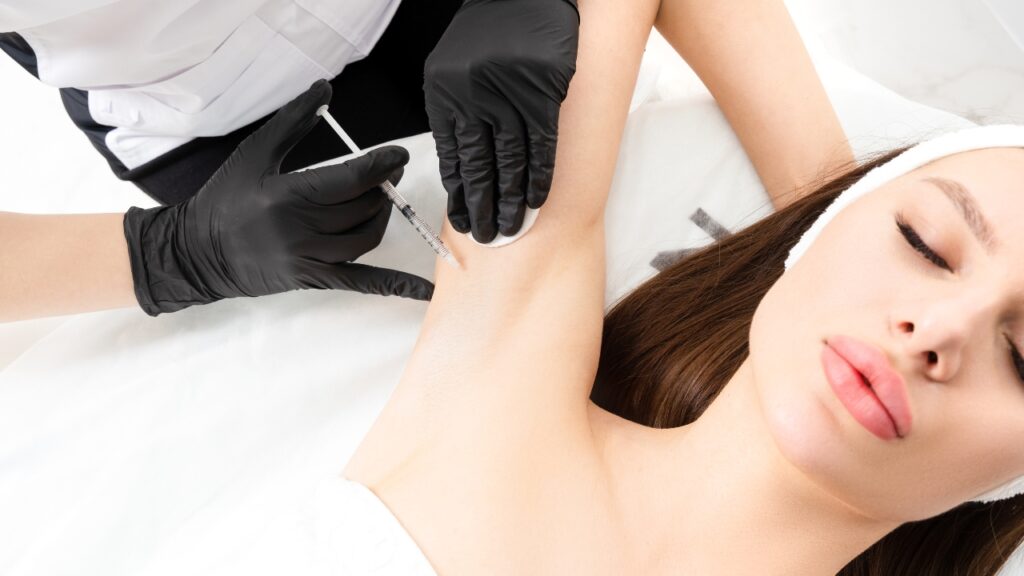
Managing Hyperhidrosis in Daily Life
Clothing Choices
Wear loose-fitting clothes made from natural fibers. Avoid synthetic fabrics that can trap heat and moisture.
Stay Hydrated
Drinking plenty of water helps regulate body temperature and can reduce the tendency to sweat.
Stress Management
Stress can trigger or worsen hyperhidrosis. Practice stress-relief techniques like yoga, meditation, or deep breathing exercises.
Hygiene Practices
Maintain good hygiene to prevent bacterial growth and odor. Shower regularly and use antibacterial soap.
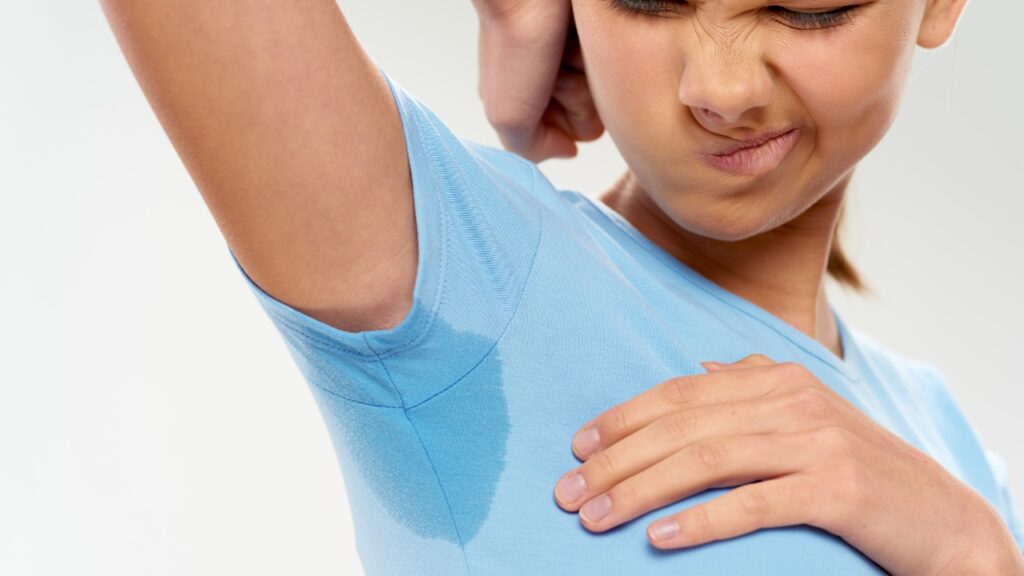
FAQs
1. Can diet affect hyperhidrosis?
Yes, certain foods and beverages can trigger excessive sweating. Spicy foods, caffeine, and alcohol are common culprits.
2. Is hyperhidrosis hereditary?
Hyperhidrosis can run in families, suggesting a genetic component to the condition.
3. Are there any lifestyle changes that can help?
Yes, maintaining a healthy weight, managing stress, and choosing appropriate clothing can all help manage symptoms.
4. Can hyperhidrosis be cured permanently?
While there’s no definitive cure, many treatments can significantly reduce symptoms and improve quality of life.
5. What over-the-counter treatments are effective?
Strong antiperspirants containing aluminum chloride are often effective for mild cases of hyperhidrosis.



